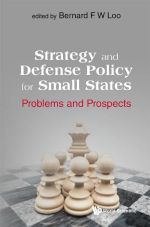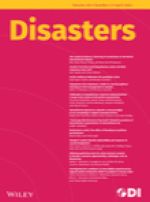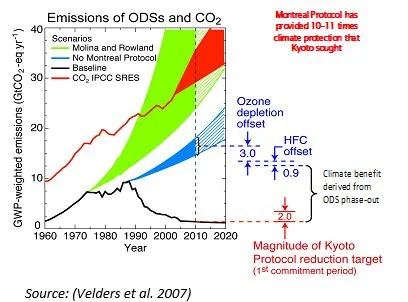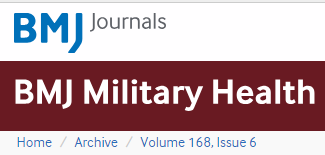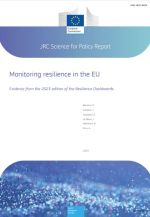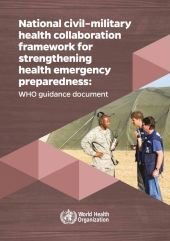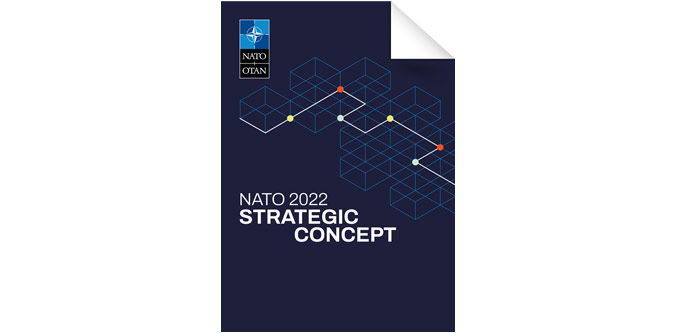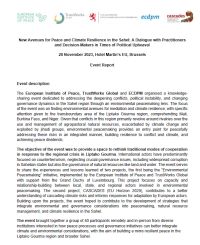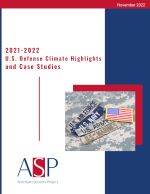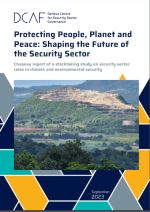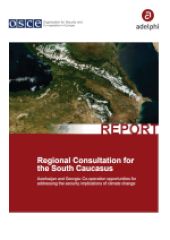PUBLICATIONS
Military Engagement in Disaster Response Policies, Interests and Issues
December 2021 - Over the past twenty years, the world has witnessed large-scale disasters which have initiated significant international humanitarian efforts to provide disaster relief to affected countries.
Military humanitarian and disaster governance networks in Southeast Asia: framework and analysis
April 2022 - This paper explores the role of military governance networks in shaping HADR affairs. It presents a framework for examining military-to-military relational structures in humanitarian and disaster contexts using network theory and social network analysis. It also assesses the nature of military ties and their influence on two capability areas essential to humanitarian activities in the region: (i) the distribution of military assets and equipment used in HADR; and (ii) the coordination of HADR exercises and training. This paper seeks to provide insights into how governance network features and properties affect the capacity of ASEAN (Association of Southeast Asian Nations) militaries to use available resources efficiently and to achieve shared objectives in regional disaster response.
MILITARY LEADERSHIP SPUN OFF TO CIVILIAN SECTORS PROTECTS GLOBAL SECURITY
30 March 2023 - This paper recalls and documents the military leadership under the Montreal Protocol, presents indicative case studies of how technical performance of military systems was maintained or improved by adopting newer technologies, and summarizes key lessons from military leadership in protecting the ozone layer.
Military provision of maternal care in humanitarian and disaster relief operations
2022 - With three-quarters of the 80 million people in need of humanitarian assistance being women or children in 2014, maternal care makes up a significant burden of medical care in humanitarian assistance and disaster relief operations. Due to lack of infrastructure and up to 80% of these displaced people being located in developing countries, mothers are often extremely vulnerable to disease, abuse and malnutrition. This can lead to late presentations of severe disease and birthing complications that would usually be easily manageable, but are far more complex due to the physical condition of the mother and lack of available resources. The British Armed Forces are often involved in humanitarian assistance and disaster relief either intentionally or due to the nature of the operations they carry out.
Monitoring resilience in the EU
20 November 2023 - This report analyses the dashboards and the latest set of synthetic resilience indices for the EU and each Member State, highlighting resilience vulnerabilities and capacities across the four dimensions and fourteen underlying areas. ...The report contains the first in-depth empirical analysis of resilience patterns in the EU ... and reveals that the EU’s current resilience capacities are considerably higher relative to the previous decade on average, while its resilience vulnerabilities have remained broadly similar.
National civil–military health collaboration framework for strengthening health emergency preparedness: WHO guidance document
2021 - This report aims to provide guidance to improve collaboration between the public health and military sectors, under the International Health Regulations of 2005. Key elements for effective civil military health collaboration for the development of national core capacity to prevent, detect, respond to and recover from health emergencies are highlighted, including (a) establishing a strategic collaboration plan for health emergency preparedness; (b) acknowledging differences between the public health sector and military health services; (c) identifying technical areas for collaboration based on the national core capacities for health emergency preparedness; (d) institutionalizing civil– military health collaboration; and (e) jointly building and training for civil–military health emergency preparedness capacities.
NATO 2022 Strategic Concept
2022 - NATO’s 2022 Strategic Concept represents an increasing emphasis on climate change, including it in 7 of the 49 main points outlined, up from 1 in the 2010 version. Notably, crisis prevention and management is one of NATO’s three core tasks, and the Strategic Concept notes the climate crisis’s effect as a threat multiplier.
New Avenues for Peace and Climate Resilience in the Sahel: A Dialogue with Practitionersand Decision-Makers in Times of Political Upheaval - Event Report
November 2023 - Building upon the projects, the event hoped to contribute to the development of strategies that integrate environmental and governance considerations into peacemaking, natural resourcemanagement, and climate resilience in the Sahel.
Policy Review – 2021-2022 U.S. Defense Climate Highlights
14 November 2022 - Following the Biden Administration’s issuance of Executive Order 14008, Tackling the Climate Crisis at Home and Abroad, and Executive Order 14057, Catalyzing Clean Energy Industries and Jobs Through Federal Sustainability, the Department of Defense (DoD) enterprise, including the Departments of the Air Force, Army, and Navy have all issued climate strategies to outline the challenges and opportunities presented by climate change.
Protecting People, Planet and Peace: Shaping the Future of the Security Sector
18 September 2023 - This chapeau report from DCAF's stocktaking study on climate security and SSG/R explores security sector roles in climate and environmental security, drawing lessons from Brazil, the occupied Palestinian territory, the Philippines, and Sierra Leone. It focuses on the potential for SSG/R programming to improve service delivery of security institutions with regards to mitigating the impact of climate and environmental risks on people, planet, and peace. Moreover, the report presents opportunities for strengthening social cohesion and contributing to sustainable peace via SSG/R.
Rationale for Military Involvement in Humanitarian Assistance and Disaster Relief
December 2019 - Good relations and trust are the foundation of soft power diplomacy and are essential for the accomplishment of domestic interventions and any bilateral or multilateral endeavour. Military use for assistance and relief is not a novel concept, but it has increased since the early 1990s with many governments choosing to provide greater numbers of forces and assets to assist domestically and internationally. The increase is due to the growing lack of capacity in global humanitarian networks and increasingly inadequate resources available to undertake United Nations humanitarian assistance and disaster relief (HADR) missions.
Regional Consultation for the South Caucasus: Azerbaijan and Georgia: Co-operation opportunities for addressing the security implications of climate change
July 2021 - The OSCE, in partnership with adelphi, has embarked since 2020 on a new extra-budgetary financed project “Strengthening responses to security risks from climate change in South-Eastern Europe, Eastern Europe, the South Caucasus and Central Asia” (Project Number: 1102151). This project builds on the results of an earlier OSCE project “Climate Change and Security in Eastern Europe, Central Asia and the South Caucasus”, which was led by the OSCE and implemented together with the Environment and Security (ENVSEC) Initiative partners and with support of the European Union Instrument for Stability and the Austrian Development Agency.
